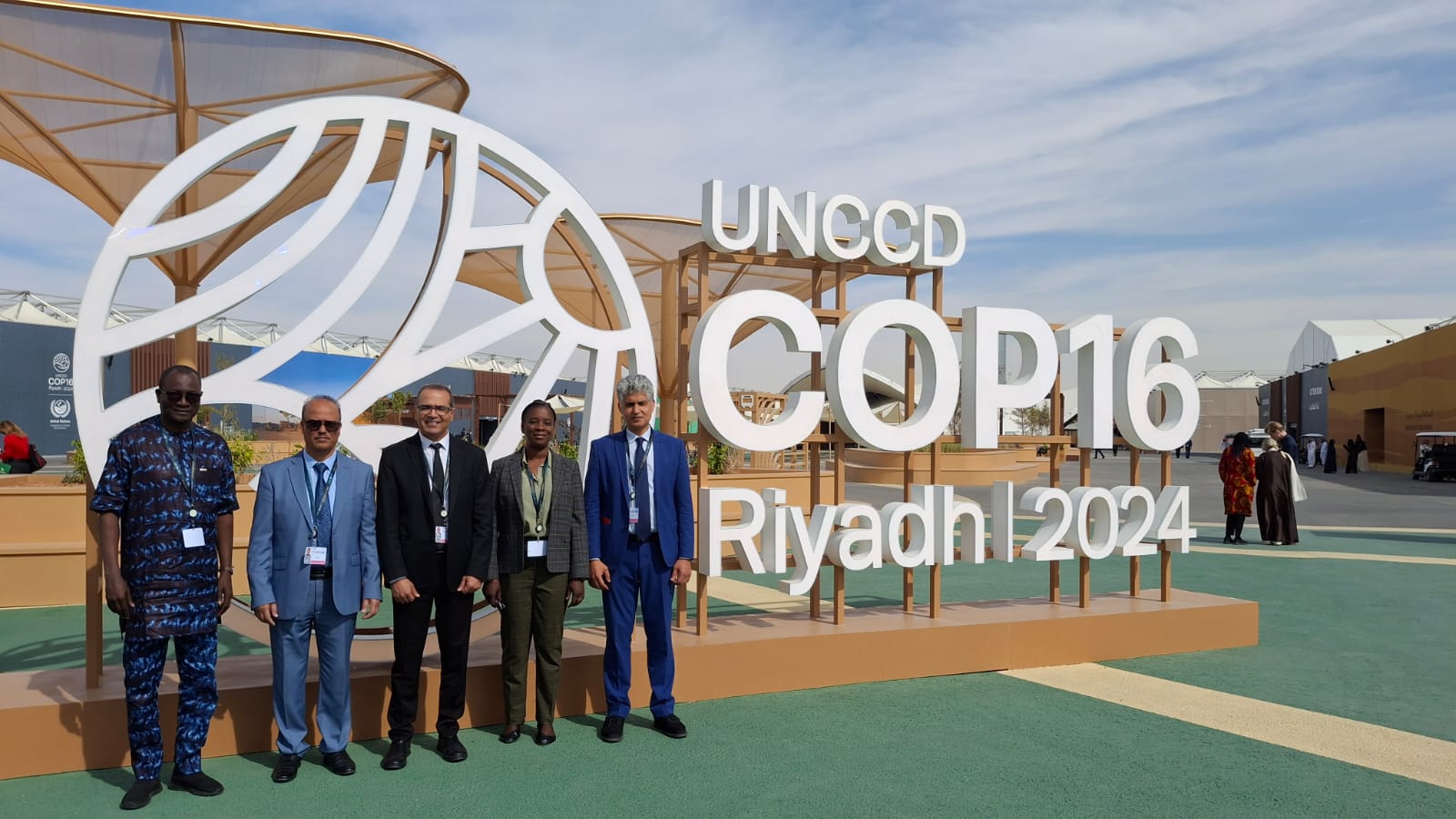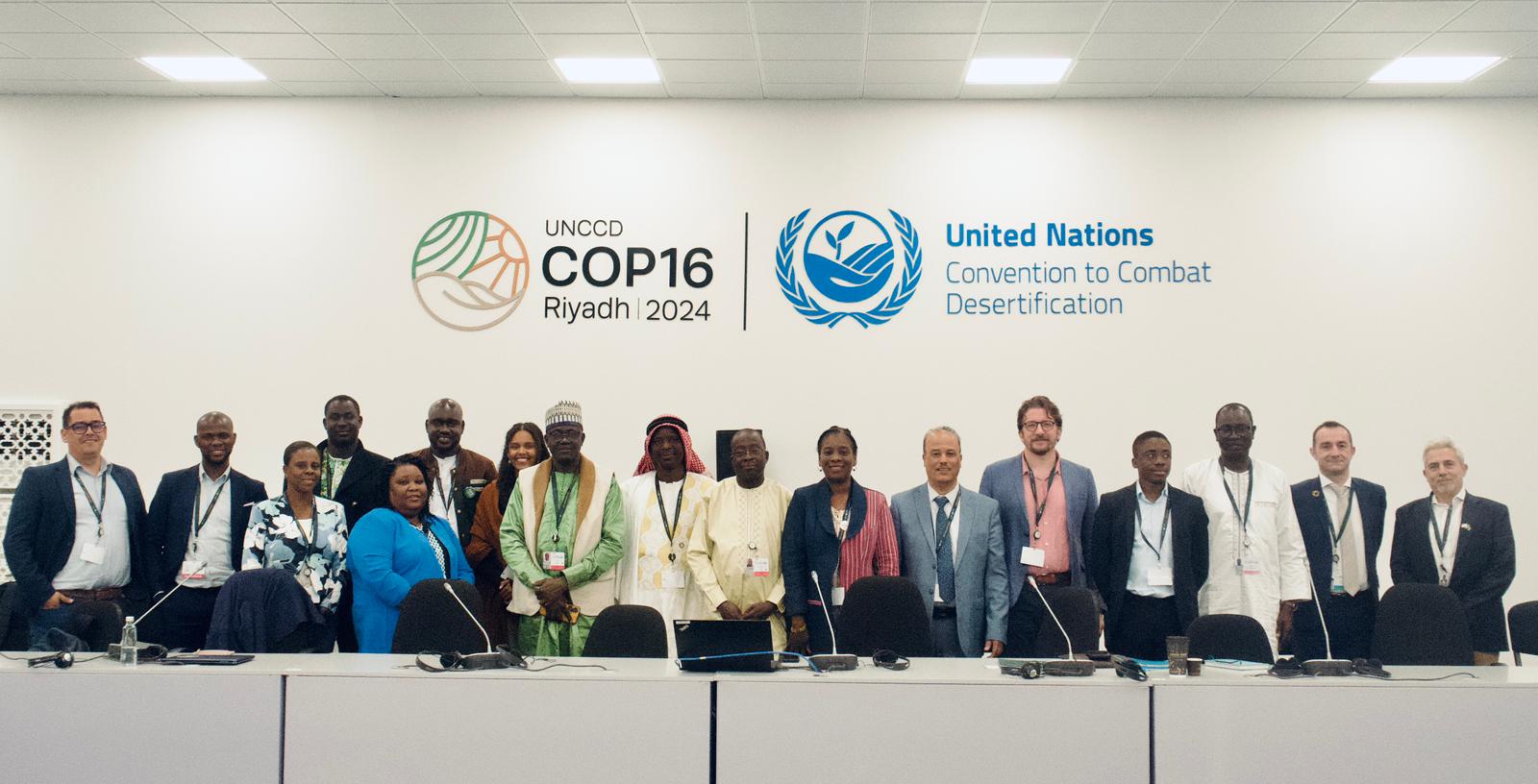Recalling the objectives of the United Nations Convention to Combat Desertification Strategic Framework (UNCCD 2018-2030, adopted at the 13th meeting of the Conference of the Parties (COP13), the Sustainable Development Goals (SDGs), the Agenda 2063 of the African Union, the UN Decade on Ecosystem Restoration as well as the objectives of the three Rio Conventions,
Aware of the land degradation pressing challenge and its impact on food security, biodiversity and the economic and social well-being of the populations,
Convinced of the land conservation benefits and the need to reverse the land degradation trend by integrating sustainable and inclusive approaches that help improve the resilience of ecosystems and populations,
Reminding that Africa is one of the continents most affected by climate change, which exacerbates food insecurity, water stress, poverty, conflicts linked to natural resources access and migratory phenomena,
We, participants in the International Conference “African Land : the Degradation and the absolute requirement of Sustainable Management”, held in Tunisia, on June 25-26, 2024 in the wake of the World Day to Combat Desertification and Drought (June 17), call upon all stakeholders to stand and mobilize to preserve and restore land in Africa and ensure lasting and equitably shared prosperity.
For this to happen, we recommend:
1. Promoting sustainable, smart and climate resilient practices
- Adopt sustainable techniques such as agroforestry, conservation agriculture, integrated management, Assisted Natural Regeneration, to restore degraded land.
- Promote agricultural practices that increase land productivity and sustainability.
2. Fostering scientific research and knowledge sharing
- Support scientific research and the development of technological innovations to combat land degradation and improve natural resources management.
- Encourage knowledge and best practices sharing between stakeholders involved in sustainable land management.
- Standardize thematic mapping standards between African countries, particularly at the sub-regional level.
3. Aligning the methods and developing smart interpretation tools
- Promote aligned land degradation assessment methods and develop smart and integrated interpretation scales for a fair and accurate land degradation assessment.
- Implement the ENCA (Ecosystem Natural Capital Accounting) approach to describe and assess land degradation and the costs it provokes.
- Develop equitable strategies adapted to local contexts, integrating a holistic approach that combines land use planning with the promotion of conservation and sustainable agriculture.
4. Strengthening strategic partnerships
- Promote partnerships between development and research institutions, countries, NGOs, local communities and the private sector for a more effective fight against land degradation.
- Consolidate multidisciplinary collaboration for the development of comprehensive land degradation identification and diagnosis tools.
- Boost and expand regional initiatives such as the Great Green Wall (GGW).
5. Mobilizing adequate financial resources
- Adopt groundbreaking methods in the search for financing and diversify the sources of financing.
- Build the capacities of African countries to effectively mobilize, allocate and manage financial resources for a sustainable land management, thus enabling regional and national institutions to submit bankable project proposals.
6. Integrating sustainable land management into public policies
- Develop reliable national and regional policies that integrate sustainable land management into economic development plans and (agricultural, environmental, etc.) sector strategies.
- Adapt public policies to the realities and specific needs of local populations for effective land management.
- Create mechanisms to monitor the implementation of national land degradation strategies and policies.
7. Creating jobs and economic opportunities
- Develop green employment opportunities and income-generating activities, particularly in rural areas, to reduce pressure on land.
- Promote rural entrepreneurship and innovation to create decent and long-term jobs in the sustainable land management sector.
8. Involving local communities and valuing their knowledge
- Integrate traditional knowledge and local innovations into natural resources conservation and co-management projects.
- Strengthen the contribution of local communities in decision-making and the implementation of initiatives to combat land degradation.
9. Raising awareness, involving and mobilizing the civil society
- Conduct awareness and education campaigns so that decision-makers and the populations become aware of issues related to land degradation and behave responsibly.
- Encourage the active participation of civil society in the elaboration, implementation and monitoring of policies to combat land degradation.
- Strengthen communication, advocacy and awareness-raising actions to unite efforts and mobilize the resources necessary to combat land degradation.
10. Adopting a precautionary and proactive, holistic and coordinated approach
- Focus on precautionary management approaches to avoid the degradation of land and natural resources.
- Rely on solid scientific data for political decisions and use satellite Earth Observation technologies for better monitoring of land state.
- Combine actions at local, national and international levels, for an effective fight against land degradation.
- Strengthen institutional coordination and collaboration between the different sustainable land management key players.

